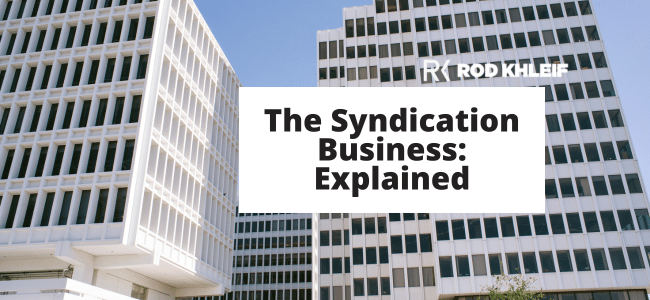Tenant screening is one of the most important systems you can develop as a real estate investor. Having a proactive strategy will help protect your cash flow, your property, and your reputation.
By carefully evaluating potential residents, you find people who can pay rent on time. They also show personal responsibility. These individuals will respect your property and help make your community better. In multifamily real estate, where your asset is directly tied to occupancy and retention, it matters more than most people realize.
This isn’t just about avoiding late rent and repairs. Effective screening minimizes vacancy loss, legal disputes, and turnover costs. In the long run, it’s one of the most powerful ways to preserve NOI and long-term asset value.
In this post, we’ll break down how tenant screening works, why it’s more critical than ever in today’s environment, and how you can implement it to build a stronger, more profitable portfolio.
What Is Tenant Screening?
Tenant screening is the process of evaluating prospective renters to determine if they are qualified, financially stable, and likely to be responsible tenants. It includes reviewing credit, income, employment, rental history, and often background checks, references, and in-person interviews.
Why Does it Matter?
When done properly, screening allows you to:
-
Reduce late rent payments and delinquencies
-
Lower turnover and vacancy costs
-
Minimize property damage
-
Prevent legal disputes
-
Create a more positive, predictable tenant base
Multifamily properties thrive when there’s community stability. Many owners focus on maximizing rent, but the truth is tenant quality is crucial to long-term performance.
How Does Tenant Screening Work?
The best screening systems are repeatable, compliant, and rooted in both data and human judgment. While the process may vary depending on your management structure or software tools, the core components remain the same—and each one plays a critical role in reducing risk.
Application Review
Every screening process starts with a thorough rental application. This isn’t just paperwork; it’s the framework that allows you to assess a potential tenant’s financial position, rental history, and reliability.
Your application should include:
-
Personal identification and contact info
-
Employment history and current income
-
Previous residences and landlord references
-
Authorization for credit, criminal, and eviction background checks
This initial document should be detailed enough to flag early concerns, but simple enough to avoid unnecessary friction during the leasing process. It also helps standardize your criteria across all applicants, which is key for both fairness and compliance.
Credit and Background Checks
Once you’ve reviewed the application, you’ll need to verify the applicant’s financial and legal history. Most landlords use a third-party screening service to run:
-
Credit reports – Look for on-time payments, debt levels, and overall financial behavior.
-
Criminal background checks – This helps you protect your property and residents from potential security issues.
-
Eviction records – A history of evictions is often the strongest predictor of future problems.
This is where objectivity matters. The numbers don’t lie. If someone has a long history of late payments or multiple evictions, even a strong interview shouldn’t override that risk.
Income and Employment Verification
Verifying income isn’t just about checking a box—it’s about confirming that the tenant can comfortably afford the rent. Many owners use the 3x rule: income should be at least three times the monthly rent. But don’t stop there.
Ask for recent pay stubs, tax returns, or bank statements. For self-employed applicants, require a longer track record of consistent income. Contact employers directly to confirm job status and tenure.
Remember: tenants who are financially strained are more likely to pay late, skip payments entirely, or vacate early.
Landlord and Personal References
References provide valuable insight that numbers can’t always reveal. When speaking with a previous landlord, ask:
-
Did the tenant pay rent on time?
-
Were there any complaints or issues?
-
Would you rent to them again?
A great tenant will often leave a trail of positive feedback. A problematic one will leave red flags—if you take the time to check.
Interviews (Optional but Insightful)
While not required, a brief in-person or phone interview can add a personal layer to the decision-making process. You might uncover mismatches in lifestyle, expectations, or communication style that could signal future challenges.
Ask open-ended questions like:
-
Why are you moving?
-
What are you looking for in your next home?
-
How long do you plan to stay?
These conversations help fill in the gaps and provide context you might not catch through paperwork alone.
Why Is Tenant Screening Important?
1. Protects Your Investment
A well-vetted tenant is more likely to prioritize the upkeep of your property, uphold the terms of the lease agreement, and make timely rent payments. This translates to a preserved investment value, minimized vacancy risks, and enhanced financial stability.
Carefully examine income documentation, employment history, credit records, and rental histories. You’ll gain insights into a potential tenant’s financial capacity, reliability, and adherence to tenancy norms.
A thorough tenant screening procedure protects your investment from potential financial losses and safeguards your multifamily property’s overall integrity. If you can discern tenants less prone to property damage, nuisance behavior, or disruptive activities, you can foster a more harmonious living environment for all residents.
2. Protects your Net Operating Income (NOI)
Your NOI is the heartbeat of your property’s financial health. Late payments, skipped rent, extended vacancy, and property damage all eat into it.
Screening tenants will significantly reduce the likelihood of:
-
Nonpayment of rent
-
Costly legal actions or evictions
-
Property damage and repair costs
-
Early move-outs that leave you scrambling to fill units
Better tenants mean steadier income. And when your income is consistent and predictable, you’re in a better position to refinance, raise rents, or sell at a premium when the time is right.
2. Reduces the Risk of Vacancy
A comprehensive tenant screening involves evaluating factors such as stable employment history, positive rental references, and a demonstrated commitment to long-term tenancy. Assess these aspects carefully so you can identify tenants less likely to vacate the property prematurely, and reduce vacancy rates and enhance your cash flow.
Effective tenant screening also entails proactively addressing potential tenancy issues. By identifying tenants with a history of frequent moves or evictions, you can proactively assess potential risks and implement strategies to mitigate the likelihood of vacancy.
3. Improves Tenant Retention
A thorough screening process involves assessing tenants’ compatibility with the property’s demographics, lifestyle preferences, and community expectations. You can foster a sense of belonging and encourage long-term tenancy by matching tenants with properties that cater to their specific needs and preferences.
Effective tenant screening also entails establishing clear communication channels and providing tenants with timely responses to inquiries. Addressing concerns promptly and demonstrating a commitment to tenant satisfaction can foster a sense of trust and loyalty, encouraging tenants to remain at your property for a longer duration.
4. Increases Rental Income
A good tenant is a responsible resident and a valuable asset to your multifamily property investment. Tenants who are financially stable, reliable, and committed to upholding the lease agreement are more likely to be able to afford higher rental rates.
Tenant screening is crucial in identifying tenants with the financial capacity to support higher rental payments. Make sure to scrutinize income documentation, verify employment history, and assess creditworthiness.
Effective tenant screening also involves assessing tenants’ willingness to adhere to lease agreements and maintain the property’s integrity. Identify tenants with a history of timely rent payments, good maintenance practices, and respectful behavior. You can attract residents who are more likely to value your property and contribute to a stable rental income stream.
5. Protects Your Property from Damage
A tenant’s disregard for property maintenance can lead to excessive wear and tear, costly repairs, and diminished property value. Tenant screening helps to identify individuals who prioritize the upkeep of their living space and are less likely to engage in destructive or negligent behaviors.
A thorough screening process involves evaluating tenants’ rental histories, assessing their past maintenance practices, and obtaining references from previous landlords. Identify tenants with a demonstrated commitment to maintaining their properties, so you can reduce the risk of property damage and preserve the overall value of your investment.
Effective tenant screening also entails establishing clear expectations regarding property maintenance and enforcing consequences for non-compliance. By clearly communicating expectations and enforcing policies, you can encourage tenants to prioritize the upkeep of their living space and minimize the risk of costly repairs.
5 Tips to Effectively Screen Tenants
1. Craft a Comprehensive Rental Application
Your rental application form serves as the foundation for tenant screening, providing a structured approach to gathering essential information from potential occupants. A well-crafted application should encompass a range of relevant details, including:
- Tenant’s Name and Contact Information: Obtain the tenant’s full name, mailing address, contact phone numbers, and email address to facilitate communication and address any inquiries promptly.
- Income Documentation: Request pay stubs or tax returns to verify the tenant’s financial capacity to meet the rental obligations. This helps ensure the tenant can afford the monthly rent payments and comply with the lease agreement.
- Employment History: Verify the tenant’s employment status and length of employment at their current or previous positions. This helps assess their stability and ability to maintain consistent income streams.
- Credit History: Conduct a tenant credit check to evaluate the tenant’s financial history. A positive credit history indicates a history of timely payments and responsible financial management, while a negative credit history may raise concerns about potential payment defaults or financial instability.
- Rental History: Obtain references from previous landlords to gain insights into the tenant’s tenancy history. This information can provide valuable insights into their behavior, adherence to lease agreements, and overall suitability for your property.
2. Conduct Thorough Tenant Screening and Background Check
Beyond the rental application, conducting comprehensive tenant screening background checks is crucial for identifying potential red flags or compatibility issues with your property or community. These checks should encompass the following:
- Criminal Background Check: Verify that the tenant has no criminal record that poses a safety or security risk to other residents or the property.
- Eviction Check: Ensure that the tenant has no history of evictions, which may indicate challenges with tenancy compliance or financial stability.
- Driving Record Check: Evaluate the tenant’s driving record to assess any potential safety concerns or issues with vehicle ownership.
3. Conduct In-Person Interviews
An in-person interview allows you to gauge the tenant’s personality, communication skills, and overall suitability for your property. Engage in open-ended questions to assess their lifestyle preferences, expectations for the property, and reasons for seeking tenancy at your property. Pay attention to their demeanor, body language, and overall engagement during the conversation.
4. Verify Income and Employment
Confirming the tenant’s ability to afford the rent is essential for ensuring consistent rent payments and minimizing financial risks. Verify income through pay stubs or tax returns and verify employment with the tenant’s employer to ensure a stable income stream. This helps safeguard your investment and minimize the likelihood of late or missed rent payments.
5. Obtain Positive References
Seek positive references from previous landlords and employers to gain insights into the tenant’s behavior, responsibility, and overall tenancy history. Positive feedback from previous landlords can attest to the tenant’s commitment to maintaining a well-maintained property, adhering to lease agreements, and resolving any issues promptly. Negative feedback may raise concerns about potential issues or lack of accountability.
The Importance of Tenant Screening in a Challenging Economic Environment
In times of economic uncertainty, tenants with a history of financial stability and responsible rental practices are more likely to maintain their commitments and uphold the terms of the lease agreement. By screening for these qualities, landlords can attract and retain tenants who are committed to the property and contribute to a harmonious living environment.
Thorough tenant screening also empowers landlords to protect their investments from potential risks associated with fluctuating economic conditions. By identifying tenants with stable employment and a demonstrated commitment to responsible tenancy, landlords can safeguard their asset value and minimize the impact of economic downturns.
Final Thoughts from Rod Khleif
Tenant screening isn’t just a checklist item. It’s a protective system—one that shields your income, your asset, and your peace of mind.
In multifamily, every unit is a business, and every tenant is a partner in that business. The more intentional you are about who you let through the door, the stronger your cash flow, your community, and your long-term value will be.
As an investor, your #1 job is to make smart decisions that reduce risk and grow wealth. That starts with understanding your numbers.
So, take screening seriously. Standardize it. Strengthen it. Build it into your leasing operations the same way you’d build due diligence into your acquisitions.
Because over time, the investors who win the most are the ones who operate with clarity, consistency, and care—starting with who they choose to rent to.
Let’s build something great.
— Rod












